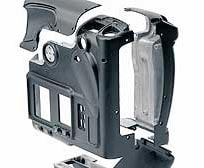In the world of manufacturing, magnesium is becoming an increasingly popular material due to its many benefits. Magnesium is a lightweight, high-strength metal that is also highly durable and corrosion-resistant. It is commonly used in the automotive, aerospace, and electronics industries, among others, as a material for casting parts. In this blog post, we will explore some of the benefits and applications of magnesium die casting.

High Strength and Lightweight
One of the key advantages of magnesium is its high strength-to-weight ratio. It is one of the lightest structural metals available, making it an ideal material for use in applications where weight reduction is a primary concern. Despite its low density, magnesium is also highly rigid and resistant to deformation, making it a reliable material for use in high-stress applications.
Corrosion Resistance
Another significant advantage of magnesium is its natural corrosion resistance. Unlike other metals, such as steel or aluminum, which can rust or oxidize over time, magnesium forms a protective oxide layer that helps prevent corrosion and degradation. This makes magnesium an ideal material for use in marine environments, where exposure to saltwater and other corrosive substances is common.
Good Heat Dissipation
Magnesium also has excellent thermal conductivity, which makes it an ideal material for use in applications that require efficient heat transfer. This property makes it particularly useful in electronic devices, where heat management is important to prevent overheating and equipment failure.
Applications of Magnesium Die Casting
Automotive Industry
The automotive industry is one of the largest consumers of magnesium die casting parts. The lightweight and high-strength properties of magnesium make it an ideal material for use in various automotive components, such as gearshift housings, steering columns, and engine blocks. As automakers continue to look for ways to reduce vehicle weight and improve fuel efficiency, the demand for magnesium die casting in the automotive industry is expected to grow.
Aerospace Industry
The aerospace industry is another major user of magnesium die casting parts. Its lightweight and high-strength properties, combined with its excellent corrosion resistance, make it an ideal material for use in aircraft components such as seats, panels, and housings. Magnesium die casting is also used in rocket motor housings due to its excellent thermal conductivity properties.
Consumer Electronics
Magnesium die casting is also commonly used in the production of consumer electronic devices. Its excellent thermal conductivity makes it ideal for use in laptops and smartphones, where efficient heat dissipation is critical. It is also used in the manufacture of audio and video equipment, cameras, and other consumer electronics components.
Conclusion
In conclusion, magnesium die casting has numerous advantages that make it an ideal material for use in various applications. Its high strength-to-weight ratio, corrosion resistance, and excellent thermal conductivity properties make it a popular choice in the automotive, aerospace, and electronics industries, among others. As the demand for lightweight, durable, and reliable materials continues to grow across all industries, magnesium die casting is expected to play an increasingly important role in manufacturing.
